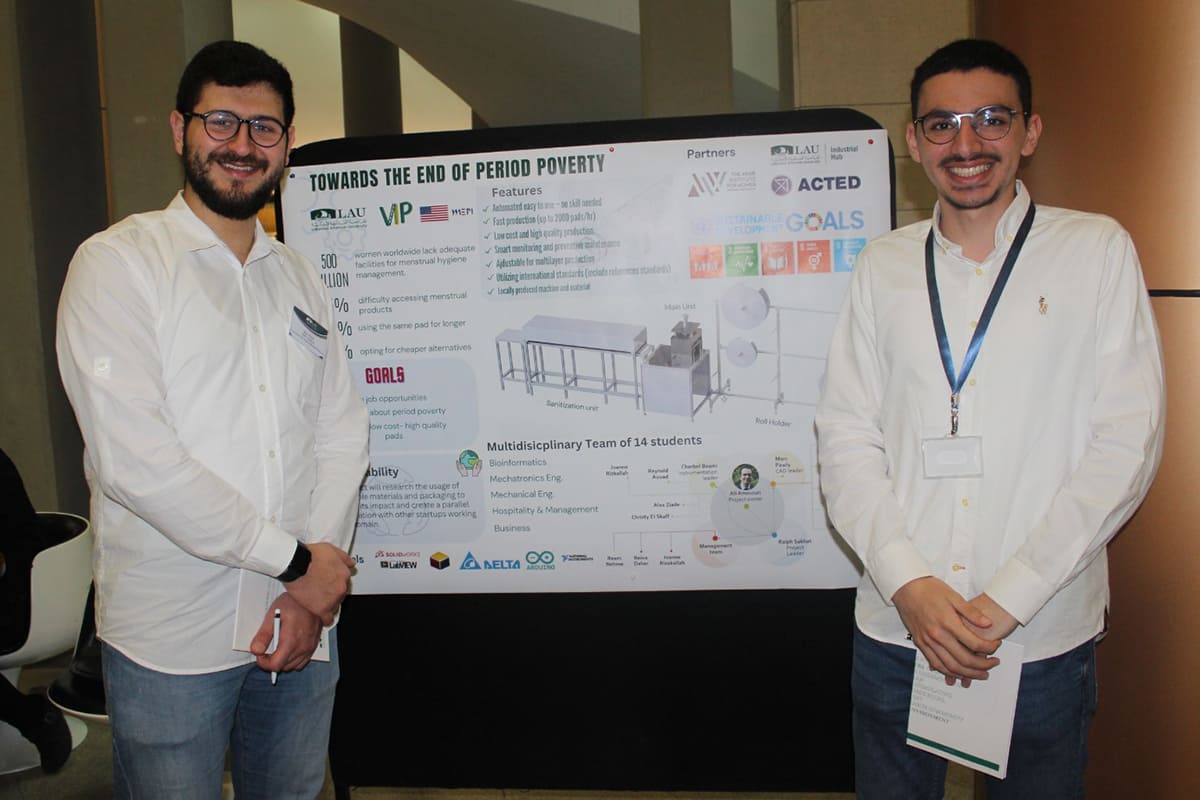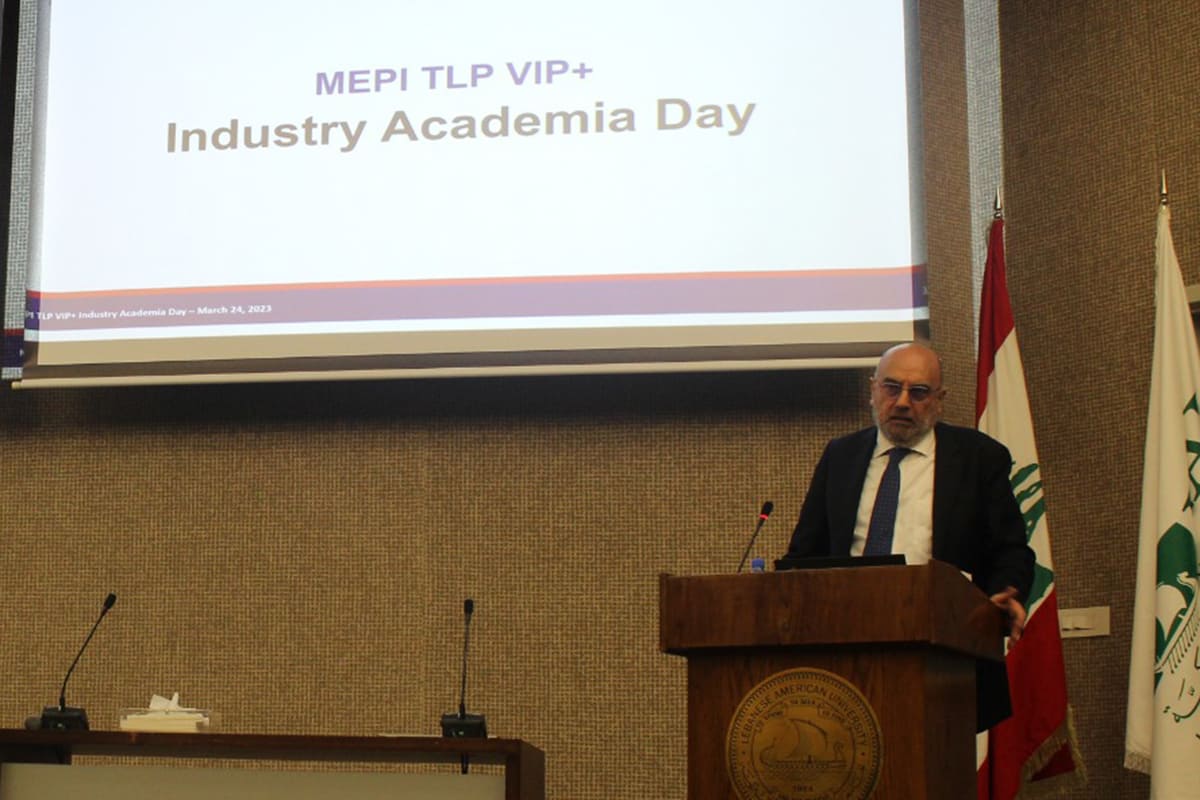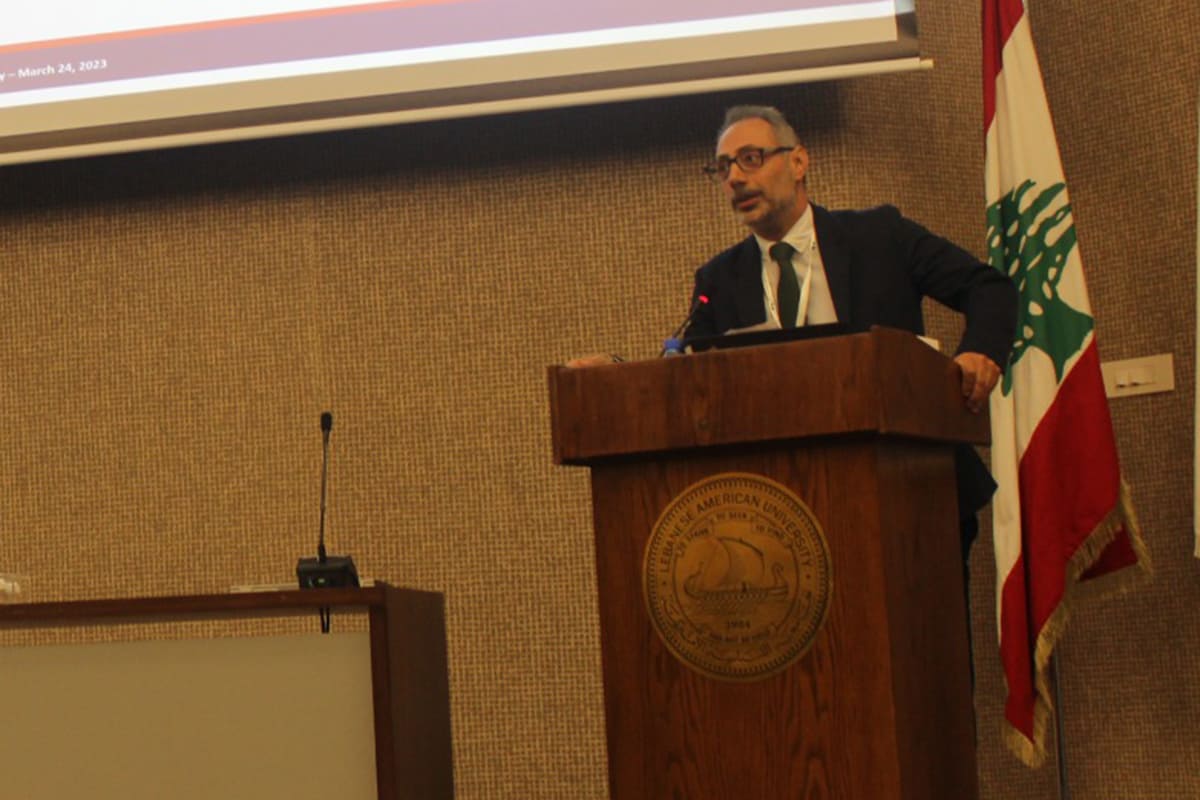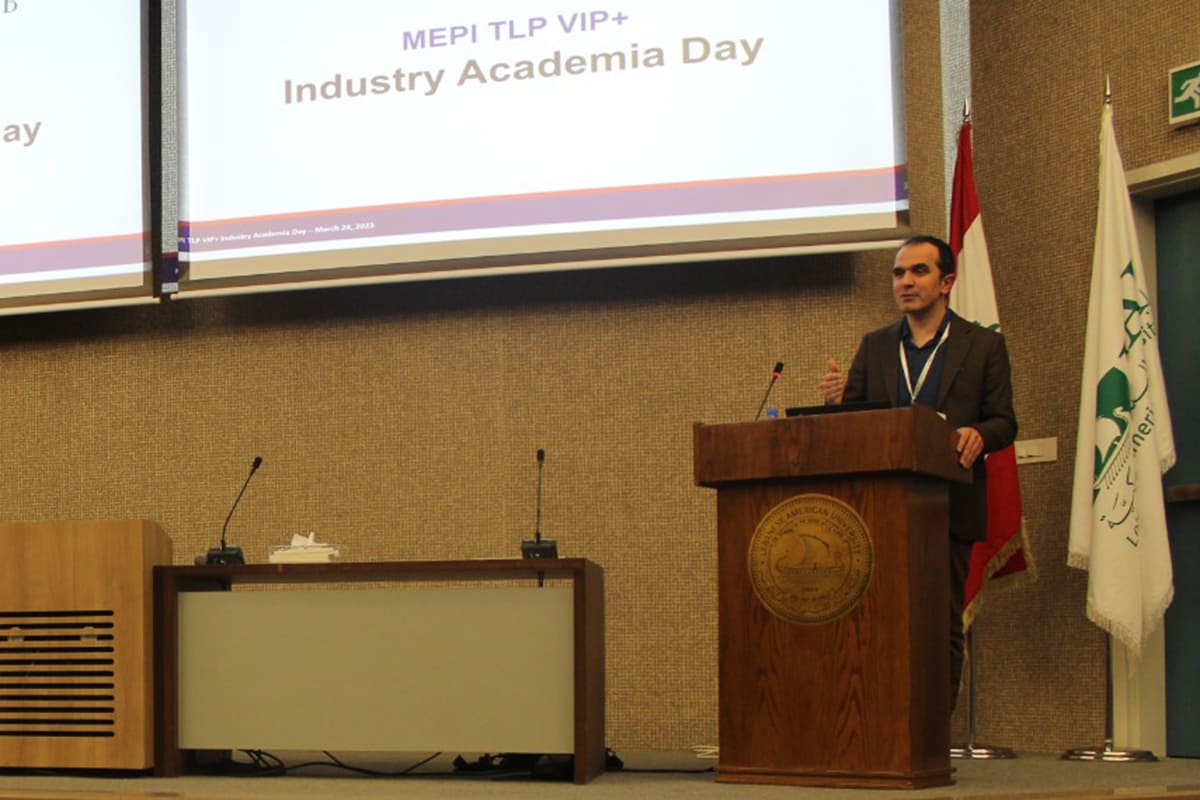Vertically Integrated Projects Turn Heads at the Industry-Academia Day
Multidisciplinary teams of students pitch their entrepreneurial ideas to professionals from across industries.
Since its inception at LAU in 2021, the Vertically Integrated Project (VIP+) framework has encouraged students to tap into their potential as future entrepreneurs and develop ideas that address everyday problems.
Funded by a Middle East Partnership Initiative (MEPI) grant, the VIP+ framework helps students maximize their career prospects by connecting them with employers, under the umbrella of the Tomorrow’s Leaders College-to-Work Pipeline (TLP) program.
On March 24, this dynamic was on full display at the MEPI-TLP VIP+ Industry-Academia Day, hosted by the LAU School of Engineering (SOE) on the Byblos campus, where 10 student teams presented their groundbreaking ideas to a jury of university leaders, faculty and industry partners.
From sustainable agricultural practices and solutions to telemedicine and categorizing through Artificial Intelligence, the projects proposed solutions to a wide array of current challenges.
“Our goal [at the SOE and through MEPI-TLP],” said SOE Dean and TLP Project Director Michel Khoury, “is to close the gap between industry and academia, while promoting student entrepreneurship.” As such, he added, the event presents “a haven for students to practice and get ready for the workplace,” while industry partners can benefit from fresh ideas.
Dr. Khoury encouraged the pitching teams to “exercise their full potential, test your creative limits, innovate and learn from peers because success is not just about winning.”
In his keynote address, Provost George E. Nasr elaborated on the university’s Fourth Strategic Plan (SPIV) and its pillars, and how it is closely connected to the objectives of VIP+. “In today’s fast-paced world, the ability to work efficiently is key and incorporating VIP+ is crucial,” he said.
Referring to the second SPIV pillar as one example – Educate for Impact – Dr. Nasr said that academic requirements are being revamped to adhere to the United Nations Sustainable Development Goals (SDGs). “We want our students to contribute to solving the problems that are baffling the world,” he noted, and “programs such as the VIP+ firmly align with this mission.”
Founder and CEO of DLOC Biosystems Waddah Malaeb shared his experience with entrepreneurship. After graduating in mechanical engineering, Malaeb went on to invent an organ-on-chip used to test drugs and better predict their effect on humans.
Prior to the team presentations, Director of the LAU Industrial Hub and TLP Project Manager Ali Ammouri explained how the students had developed their ideas, supervised by faculty members across the different LAU schools.
“The teams are multidisciplinary and members of the same team can have varying academic standings – sophomores, juniors and seniors – which makes the experience all the more enriching for them,” he said.
The winning team – the self-proclaimed “Padvocates” – proposed a machine for manufacturing sustainable sanitary pads at a lower cost. Their project targets the social, economic and cultural hindrances that cause “period poverty,” by making these essential products more accessible to women.
The team, supervised by Dr. Ammouri, will go on to pitch their idea at the Annual VIP Consortium in the US.



